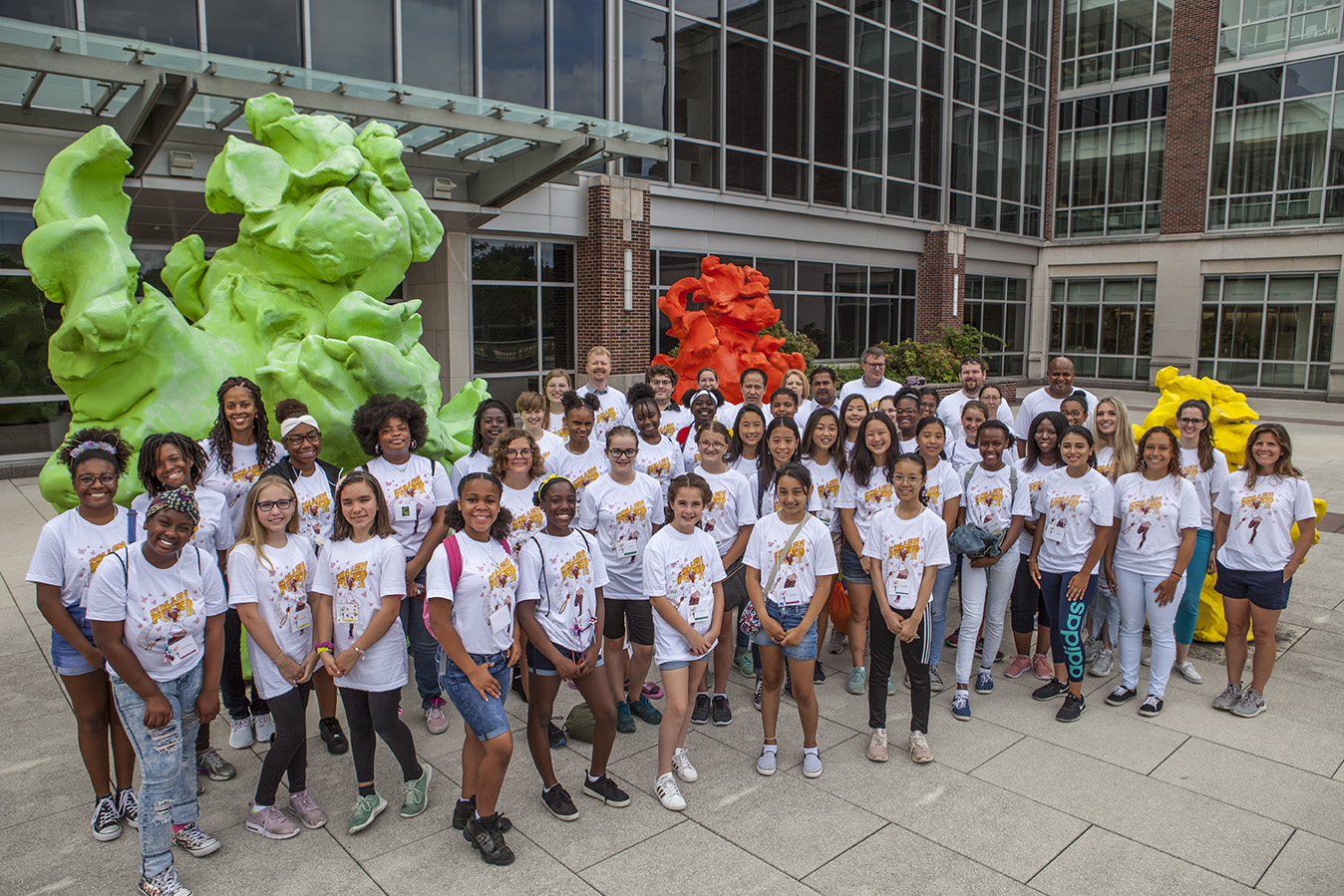Summer heats up with a week of science at IGB’s Pollen Power camp
Do you like a classic summer camp, one that offers new friendships, field trips, treasure hunts, and sweet treats? Or are you looking for the best that a science camp has to offer: laboratory visits, high-resolution microscopes, exotic live insects, and 3D printing?
Why not both?
Pollen Power camp, offered this July for the seventh consecutive year by the Carl R. Woese Institute for Genomic Biology (IGB), offers a quirky blend of plant science, technological exploration, and summer fun. The camp aims to introduce middle school girls to the world of plant biology research and provide strong female role models in STEM fields; this year’s attendees appreciated the full breadth of the camp’s offerings.

“What I for real liked about it was, you made new friends,” said eighth grader Janae Hall. “I really liked that part, getting to know people.”
Seventh grader Lauren Payton, a fellow camper, also enjoyed making new friends. “But I like succulents a lot, I love them so much, especially cacti. So when we went to the greenhouse earlier and we went into the room with all the succulents, I was in love,” she said.
The camp is co-organized by U.S. Department of Agriculture Agricultural Research Service scientist Lisa Ainsworth and Professor of Plant Biology Andrew Leakey, working with IGB Core Facilities and Outreach staff. Funding is provided in part by the National Science Foundation and the IGB. Outreach and Communication Specialist Adrienne Gulley directs the week-long camp, and female researchers in plant sciences, entomology, crop sciences, and related fields are recruited as counselors.
“On the last day of camp after the prizes are given away . . . the girls come up to me and say ‘thank you’ or ‘I had a really good time,’” Gulley said. “They give hugs and smiles and tell me how they were glad they were able to attend the camp because they made new friends throughout the week.”
Highlights of the camp’s activities include imaging, modeling, and 3D printing representations of individual grains of pollen; pollinating research plants in the field; and constructing an evolutionary timeline of Earth’s flora. Campers also script, plan, and film newscasts on the past, present, and future climate.
Other items on the week-long schedule emphasize the many facets of modern plant biology research. Campers visited a research crops growing in the field, the Champaign-Urbana Community Fab Lab, laboratories of IGB members, and the Pollinatarium.
Perhaps most importantly, campers became more comfortable and confident in a first-class research facility and around campus, with the daily routine of scientific exploration buzzing around them.
“You feel at home,” said seventh grader Hannah Cross. “I liked the Fab Lab, just seeing new things and seeing how this whole campus is not just about being smart; it's fun also.”
